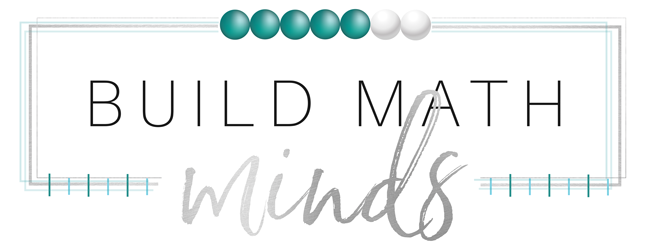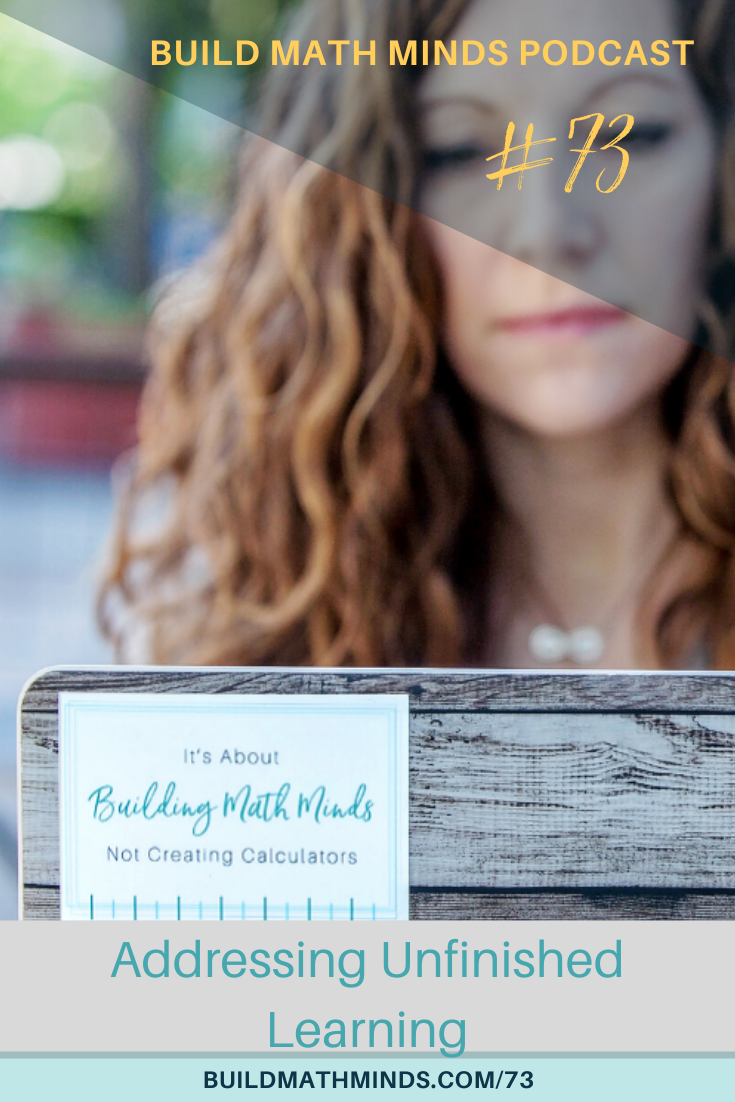Resources mentioned in this episode:
Welcome fellow Recovering Traditionalists to Episode 73. Today we are talking about Addressing Unfinished Learning.
As we start back to school this year a common concern is how to address the unfinished learning that may have happened during COVID-19. So today I’d like to encourage you to check out two documents put out by the Student Achievement Partners:
- 2020–21 Priority Instructional Content in English Language Arts/Literacy and Mathematics
- Addressing Unfinished Learning After COVID-19 School Closures
Both of those are wonderful resources that will help you during this time but today I want to share with you a section from the Addressing Unfinished Learning document.
On page 3 they write:
“In this section, we introduce six overarching principles for supporting students with unfinished learning. In planning instruction for the coming school years, districts should (1) stick to grade-level content and instructional rigor, and (2) focus on the depth of instruction, rather than the pace. To provide this grade-level instruction, districts will need to help teachers (3) prioritize content and learning. In order to continue to reflect a districts’ instructional vision and commitment to equity, educators will also need to (4) maintain the inclusion of each and every learner and (5) identify and address gaps in learning through instruction, avoiding the misuse of standardized testing to place kids into high or low ability groups or provide low levels of instructional rigor to lower performing students. Finally, districts should consider (6) focusing on the commonalities that students share in this time of crisis, not just on their differences.
These principles reflect high-quality instruction in general, but they will be particularly crucial as schools reopen amidst the COVID-19 pandemic. At that time, schooling may look very different than it has in previous years, and a district’s academic response will need to be closely integrated with its social emotional and mental health response. But regardless of what instructional delivery model a school district implements or what combination of in-person and virtual learning it employs in the coming months and years, adhering to these overarching principles will help ensure that all students have equal access to high-quality instruction and educational opportunity.”
So basically those 6 principles are things we should be doing at all times, but are especially important now.
To end this podcast I want to focus on just one of those 6 because I know so many well-intentioned teachers start the year off with an assessment to see where students are. I get it, you want info about what your students know in order to help you decide where to start. But, as they said in this document, you should be sticking to grade-level content so start there and then you can identify gaps in learning through that instruction not assessments and here is one reason why.
On page 7 they write:
“The first instinct of many districts will be to immediately test students upon their return to school in order to gauge their academic level and needs. This would be a mistake for many reasons. To begin with, districts should focus on creating learning environments that feel both physically and psychologically safe for students (and adults). Educators need to work to reengage students in school, emphasizing the importance of the school community and the joy of learning. Administering tests too soon undermines both of these objectives. Moreover, testing appears to put the onus of learning losses on the students themselves—the resulting label of “deficient” or academically behind may very well further alienate and isolate the students who most need our support.”
Please go download these documents, they are free and full of great information for this school year. The Priority Instructional Content document gives guidance on what standards we should be focusing on in each grade level. The Addressing Unfinished Learning gives more info about those 6 principles, but I have to say one of my favorite things in that document is the conceptual maps that show the connectedness of the big mathematical ideas in the different grade bands so you can see the connections between the grades above and below you.
I know that as the start of this school year gets going, you are doing amazing. Everybody’s situation is different, but I want to remind you are doing amazing.
Stay safe and stay healthy.
Subscribe and Review in iTunes
Hey, are you subscribed to the Build Math Minds Podcast, yet? If you’re not, make sure to do that today because I don’t want you to miss any episodes! Click here to subscribe to the podcast in iTunes.
While you’re there, don’t forget to leave a review on iTunes too. I would love to know your thoughts and how we can make sure that we give you content that you will really enjoy.
To leave a review, head over to iTunes and click on “Ratings and Reviews” and “Write a Review.” I can’t wait to hear your thoughts about the podcast.





Thank you for this! I am excited for another great resource that I can listen to on the go!
Great info for the start of the school year! Your advice on going deeper into the curriculum after our COVID-19 closure at the pacing dictated by my students was very freeing and helpful.